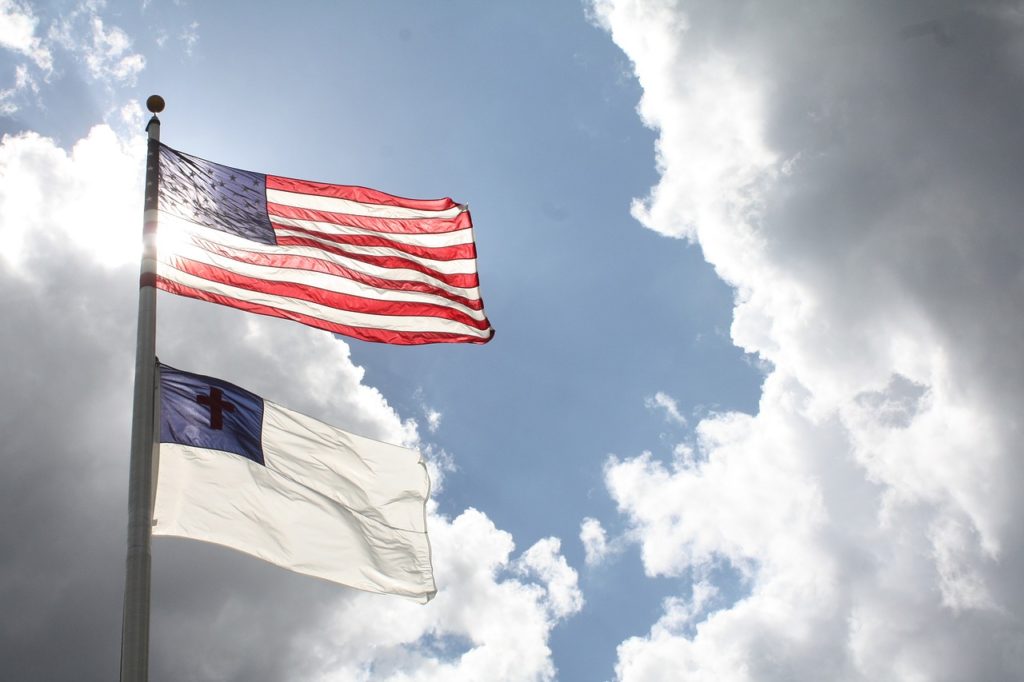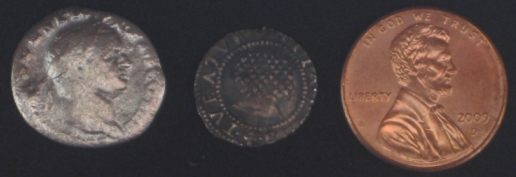
If we are not careful we can easily misinterpret the Scriptures. One of the easiest ways this happens is by ignoring Scriptural or historical context. This happens often when we focus on a verse or phrase that can have a different meaning when removed from that context.
A perfect example of this is the use among America Christians of II Chronicles 7:14. This verse is printed on posters, shirts, and coffee mugs in any Christian store you walk into. It will be preached on and quoted as a Biblical command that if America would get right with God then He could bless America like He did in the “good ol’ days”.
But is that the true teaching of the verse? I believe if we would examine this verse in its proper context we will see its primary application does not correspond to America at all.
Context
To get a feel for the context of II Chronicles 7:14 we can get a good feel for the context by looking at the events leading up to it. We can trace this by looking at the the preceding chapters of II Chronicles.
- Chapter 1 – the early reign of Solomon, includes God appearing to Solomon in Gideon when Solomon asked for and received wisdom.
- Chapter 2 – preparation for building the Temple
- Chapter 3 – The construction of the Temple
- Chapter 4 – The making of the furniture and implements for the Temple
- Chapter 5 – Beginning the dedication of the Temple
- Chapter 6 – Solomon’s address and prayer at the dedication of the Temple
- Chapter 7 – Ending the dedication of the Temple, followed by God’s second appearance to Solomon.
So we see that after the construction and dedication of the Temple, God appears to Solomon and speaks in chapter 7 from verses 12 to 22. What is the purpose of the message of this passage? God Himself tells us in vs 12: “I have heard thy prayer”. What prayer? The prayer of Solomon in chapter 6. For what purpose? The dedication of the Temple, as God also says in vs. 12: “and [I] have chosen this place to myself for an house of sacrifice”.
So the passage begins as a response to the dedicatory prayer of Solomon in chapter 6. Here let’s look at a remarkable feature of the next verse of chapter 7 is that they are largely God expressing His response to Solomon’s prayer by practically quoting it:
God in chapter 7
Solomon in chapter 6
“If I shut up heaven that there be no rain,…” – 7:13
“…when the heaven is shut up, and there is no rain,…” – 6:26
“…or if I command the locusts to devour the land,…” – 7:13
“…if there be blasting, or mildew, locusts, or caterpillers;…” – 6:28
“…or if I send pestilence among my people;” – 7:13
“…if there be pestilence,…” – 6:28
“If my people, which are called by my name,…” – 7:14
Solomon refers to Israel as as “thy people” or as “thy people Israel” a total of ten times in his prayer.
“…shall humble themselves,…” – 7:14
This phrase has no parallel to chapter 6 in letter but does in spirit.
“…and pray,…” – 7:14
“…if they pray…” – 6:26
“…and seek my face, and turn from their wicked ways;…” – 7:14
“…if they pray toward this place, and confess thy name, and turn from their sin,…” – 6:26
“…then will I hear from heaven, and will forgive their sin,…” – 7:14
“Then hear thou from heaven, and forgive the sin of thy servants,…” – 6:27
“…and will heal their land.” – 7:14
“…send rain upon thy land,…” – 6:27
“Now mine eyes shall be open, and mine ears attent unto the prayer that is made in this place.” – 7:15
“Now, my God, let, I beseech thee, thine eyes be open, and let thine ears be attent unto the prayer that is made in this place. ” – 6:40
Verse 16 finishes the first section of God’s message to Solomon with the promise concerning God’s dedication to the Temple: “For now have I chosen and sanctified this house, that my name may be there for ever: and mine eyes and mine heart shall be there perpetually. “
The final six verses of chapter 7 are God reaffirming the Davidic Covenant with Solomon. That details of that covenant can be found in II Samuel 7:1-12.
To summarize, the surrounding passage of II Chronicles 7:14 is about God responding to King Solomon’s prayer at the dedication of the Temple in Jerusalem.
- Who is God addressing in this passage? Solomon.
- What is God responding to? The dedication of the Temple and Solomon’s dedicatory prayer.
- Who is the “my people” of 7:14? Israel.
- Where is the land that God promises to heal in 7:14? The Promised Land.
- What is that land healed from? The drought, famine, pestilence, etc., that God would send to bring Israel out of their sin and back to Him.
Can these verses apply to America?
In their primary application, no. These verses are clearly linked to Israel. They are not addressed to the church or America.
Why then do we see it so often as a patriotic promise in America? Largely through lazy application of the Scriptures and the commercialization and politicization of Christianity in America.
I see something similar in the use of Psalm 33:12: “Blessed is the nation whose God is the LORD”. Note that it does not say, “if a nation has God then it is blessed.” It is not a conditional statement at all. It is acknowledging the fact that there exists a people or nation that was chosen by God. This is amplified in the rarely quoted second half of the verse: “…and the people whom he hath chosen for his own inheritance.” What nation was chosen by God in the days of the writing of the Psalms? Israel.
Another reason this verse may be misinterpreted is through the use of Replacement Theology. This false teaching holds that God has replaced Israel in His plan and promises with either Christianity or another nation such as Britain or America.
Can we still learn from these verses?
Absolutely! Paul wrote in Romans 15:4, “For whatsoever things were written aforetime were written for our learning, that we through patience and comfort of the scriptures might have hope.” Though II Chronicles 7:14 was not addressed to us we can still find countless truths in it that can find applicable in our lives.
Here’s a few examples of some truths we can apply from this passage:
When sin caused Israel to turn away from God they were commanded to repent and seek Him. We too are commanded to repent of our sin and seek God, first in our salvation and then when we backslide in our relationship with God.
II Chronicles 7:14 begins with the word “if” which makes it a conditional statement. If man would repent, then God will respond.
Note that God said “my people” needed to get right with Him. Not the wicked. Not the Edomites, Jebusites, Amalekites, or any other nation. If only we applied this today! We try to get everyone else to repent but ourselves!
God doesn’t just seek for us to perform the actions or repentance or service to Him. It is our heart that needs to be affected. It is not enough to speak words in prayer or to flee from wickedness. He wants us to humble ourselves. That is not an action, it is an attitude.

